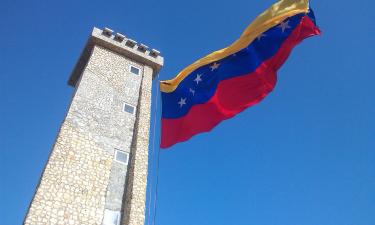UN Human Rights Committee votes against Cuba
 By a narrow margin, the United Nation passed a US fueled resolution asking Castro’s regime to secure freedom of speech and set up the basis of dialogue with the internal dissidence.
By a narrow margin, the United Nation passed a US fueled resolution asking Castro’s regime to secure freedom of speech and set up the basis of dialogue with the internal dissidence.
Latin American nations looked divided over the issue.
The United Nations Human Rights Committee passed on Thursday a new resolution asking Cuba to secure freedom of speech within the Island and to set up the basis for a dialogue with the internal dissidence. The resolution had been presented by Honduras under direct instructions from Washington and was approved by a narrow 22 to 21 margin.
The Human Rights Committee, based in Geneva, also asked Havana to accept the visit of a special commissioner to overview the situation there. A similar permission had been asked last year only to be angrily criticized by Cuba. Castro’s regime says there are no human rights violations in the Caribbean socialist country.
Latin American countries have different views over the situation in Cuba and it became clear on Thursday as did not reach to a common position. Chile, Costa Rica, Dominican Republic, Guatemala, Honduras, Mexico and Peru supported the resolution fueled by Washington, while the powerful Brazil, together with Argentina and Paraguay, abstained.
In a session with Congress on Wednesday, Argentine Foreign Ministry, Rafael Bielsa, explained why Buenos Aires was not going to support the resolution. “We do not want to do a favor to Mr. Castro, but we think that to condemn Cuba would not contribute to a material improvement in the human rights situation”, said Mr. Bielsa.
Brazil has a similar view and, together with Argentina and Paraguay, grounded its decision on the principle of no intervention in the internal situation of a sovereign nation.
Now, it is expected a strong reaction from Cuba, and the usual rhetoric of Castro condemning those countries that voted against the Island. It will be also followed by a debate inside Latin American countries, where the Cuban issue is still a matter of passionate discussions among intellectuals and governments.
Hernan Etchaleco
Subscribe to Pravda.Ru Telegram channel, Facebook, RSS!




